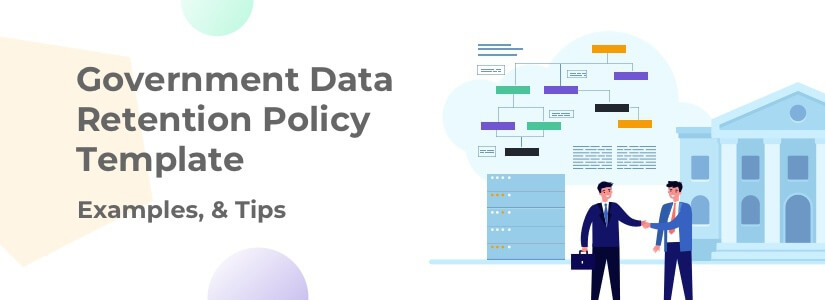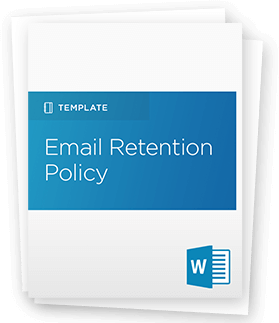


In today’s world, organizations of almost any size are required to retain records, typically for a specified period of time. These retention periods are determined by statute or regulation coming from all levels of government. While there are certain industries that typically require longer retention periods for more types of data, such as banking and transportation, government bodies and agencies often have the strictest requirements of all.
In this blog post, we will define the concept of data retention, as well as data retention policies and periods, specific requirements for government agencies and more.
Aptly named, data retention, or record retention, is the practice of storing and managing data and records for a designated period of time. Government institutions must follow both internally set guidelines and comply with regulations stemming from all sources above. To fulfill these requirements, it’s imperative that every organization develop and implement a data retention policy.
A data retention policy, or a record retention policy, is an organization’s established protocol for maintaining information. Typically, a data retention policy will define:
Government institutions are some of the most regulated bodies in the world, and as such, those responsible for staying compliant must be even more vigilant than those operating in the private sector.
A data retention period refers to the amount of time that an organization holds onto information. Different data should have different retention periods. Data retention periods for government agencies are governed by specific requirements, so it’s important to research before determining the retention periods for your data retention policy.
The requirements for government bodies and agencies are set by a combination of those further up the regulatory chain and the institutions themselves. As such, it’s impossible to exhaustively list all regulations for every institution; however, we’ll go over two at the federal level as examples.
First passed in 2002 and updated in 2014, the Federal Information Security Management Act is a wide-ranging piece of legislation designed to set out storage and security requirements for government data. It requires contractors and all federal agencies to comply with an extensive set of requirements and retain relevant data for a minimum of three years.
While the overall purpose of the NARA Code of Federal Regulations is to establish electronic information systems and ensure their security, Subchapter B is dedicated to digital record-keeping requirements. It states:
“Agencies must capture, manage and preserve electronic records with appropriate metadata and must be able to access and retrieve electronic records, including electronic messages, through electronic searches.”
Also, “all records in the system are retrievable and usable for as long as needed to conduct agency business and to meet NARA-approved dispositions.”
Though the process for creating a record retention policy will vary depending on the type of data you capture and applicable statutes and regulations, it will probably look something like this:
From email to social media content and text/SMS messages, each of Intradyn’s state-of-the-art archiving solutions enables you to create custom data retention policies that ensure regulatory and statutory compliance. Find out what Intradyn is capable of with our free on-demand demo, or by talking to one of our archiving specialists today.
Azam is the president, chief technology officer and co-founder of Intradyn. He oversees global sales and marketing, new business development and is responsible for leading all aspects of the company’s product vision and technology department.